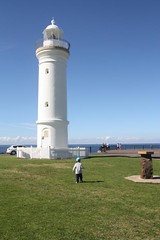.jpg)
"Blessed are those who hunger and thirst for righteousness, for they will be filled" Matthew 5:6
The Rime (Rhyme) of the Ancient Mariner was written by Samuel Taylor Coleridge and published in 1798. It tells the story of a mariner, who was doomed to sail aimlessly through stormy seas and adrift in hot endless oceans. They were endlessly drifting because the ancient mariner, on an impulse, shot and kill an albatross who was leading the ship out of the Antarctic ice sheets on which they were trapped. The ship's crew blamed him for their misfortune and placed the dead albatross around his neck.
 |
| The Albatross Around His Neck |
Like the sailors in the tale, we find ourselves adrift searching for answers to questions during the 2020 Covid-19 pandemic. Why is it taking so long for the pandemic to pass? Will we be able to maintain our jobs and livelihoods? We try to find meaning to this suffering and grief that affected so many families. We are apt to lay blame on anyone and anything. Some may even blame God.
Yet, this is exactly the right time to look to God. The Bible often spoke of times of famines, hunger and thirst during which people turned to God. During such times we look to God to be filled. In his struggles, the Ancient Mariner managed to pray, the albatross finally fell from his neck, his guilt was expiated and his suffering alleviated.
Yet, this is exactly the right time to look to God. The Bible often spoke of times of famines, hunger and thirst during which people turned to God. During such times we look to God to be filled. In his struggles, the Ancient Mariner managed to pray, the albatross finally fell from his neck, his guilt was expiated and his suffering alleviated.
"Water, water everywhere and not a drop to drink" is a refrain of despair. There are other words about thirst and water, the words of Jesus to the Samaritan woman at the well. It is one of reassurance, "whoever drinks the water I give them will never thirst again. Indeed the water I give them will become in them a spring of water welling up to eternal life."
This conversation, Jesus Met The Woman At The Well was made into song in the 1960s and sung by Peter, Paul and Mary. It began with a simple question by Jesus, "Will you give me a drink." Jesus was thirsty and He knew it; conversely the woman was thirsty but she did not know. He led her step by step, going over embarrassing facts about her life, until she realised her greatest need. She met Jesus, He transformed her life.
 My elder daughter, Debbie said, "It is so amazing how Jesus always had the right words to say to people. He was able to tailor his conversation to inspire the educated as well as the despised. At the well, Jesus met a Samaritan woman and he offered her the water of life. How appropriate, to be meeting at a well and talking about water! It was the right thing to say at the time."
My elder daughter, Debbie said, "It is so amazing how Jesus always had the right words to say to people. He was able to tailor his conversation to inspire the educated as well as the despised. At the well, Jesus met a Samaritan woman and he offered her the water of life. How appropriate, to be meeting at a well and talking about water! It was the right thing to say at the time." We are all seeking for answers especially now than ever before. There will be an appropriate word for us today. Come to Jesus, Come to the Water.
You said You'd come and share all my sorrows,
You said You'd be there for all my tomorrows;
I came so close to sending You away,
But just like You promised You came there to stay;
I just had to pray!
And Jesus said, "Come to the water, stand by My side,
I know you are thirsty, you won't be denied;
I felt ev'ry teardrop when in darkness you cried,
And I'm here to remind you that for those tears I died."
Jesus, I give You my heart and my soul,
I know that without God I'd never be whole;
Savior, You opened all the right doors,
And I thank You and praise You from earth's humble shores;
Take me, I'm Yours.
You said You'd be there for all my tomorrows;
I came so close to sending You away,
But just like You promised You came there to stay;
I just had to pray!
And Jesus said, "Come to the water, stand by My side,
I know you are thirsty, you won't be denied;
I felt ev'ry teardrop when in darkness you cried,
And I'm here to remind you that for those tears I died."
Jesus, I give You my heart and my soul,
I know that without God I'd never be whole;
Savior, You opened all the right doors,
And I thank You and praise You from earth's humble shores;
Take me, I'm Yours.
Lionel



